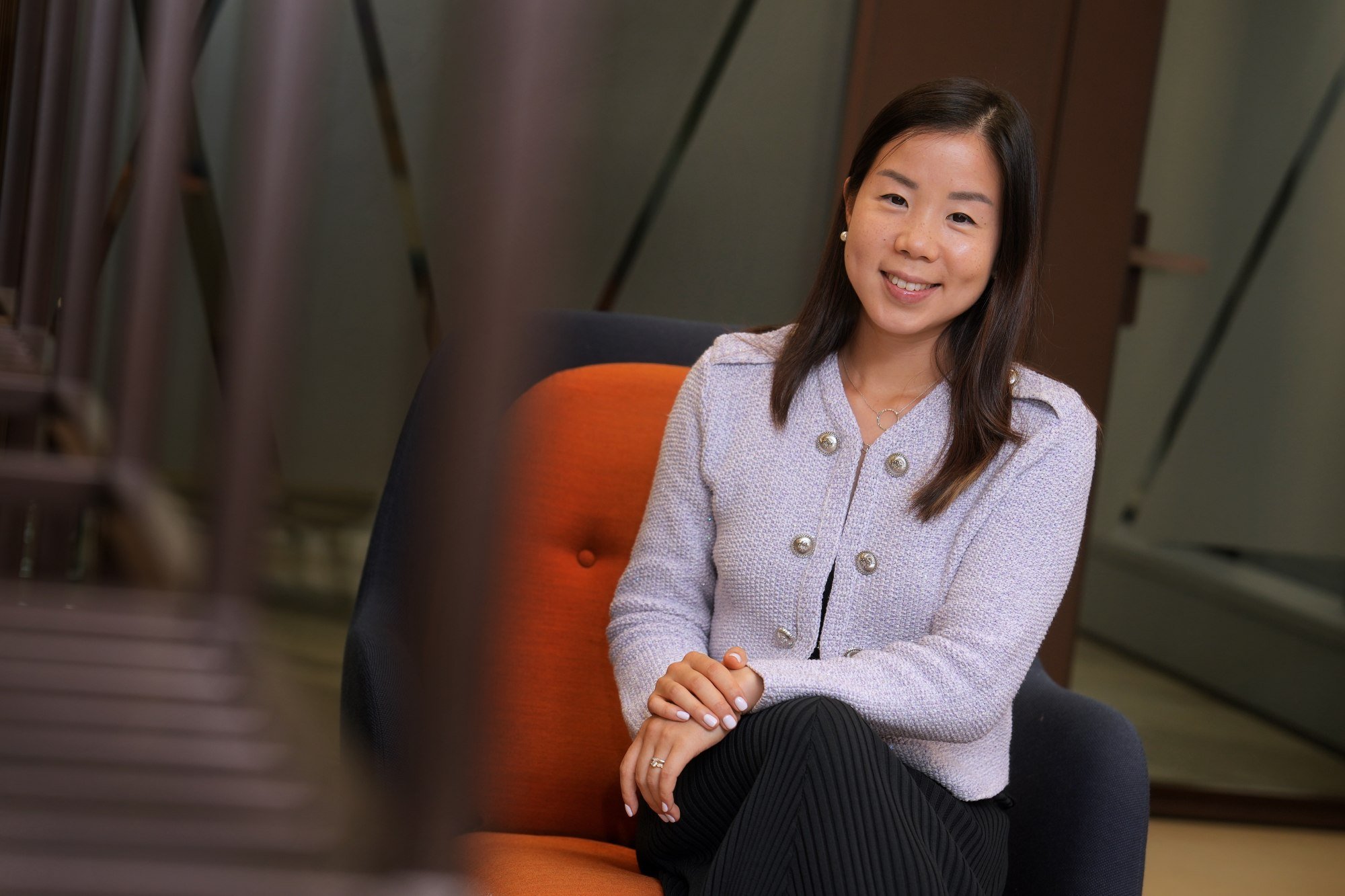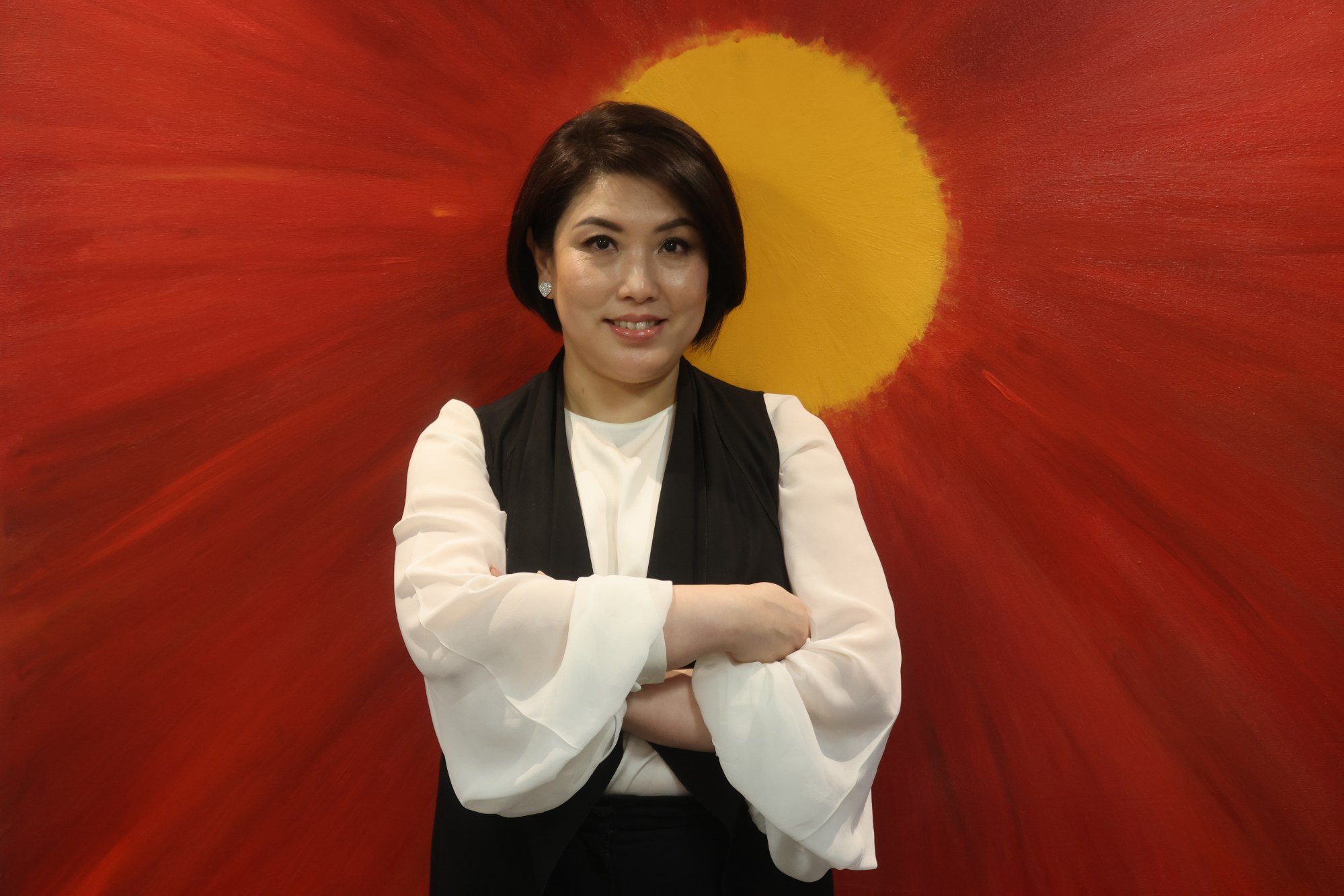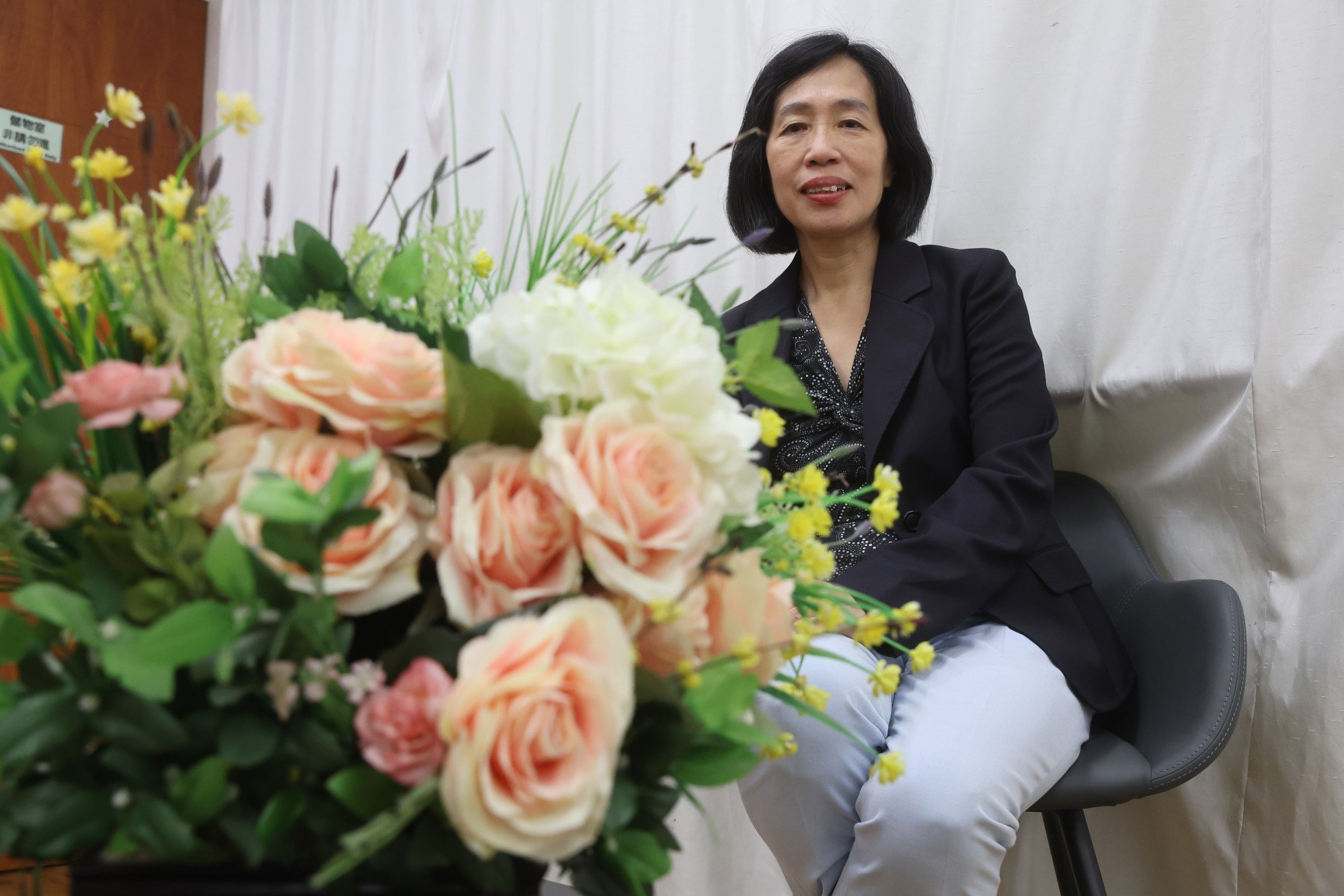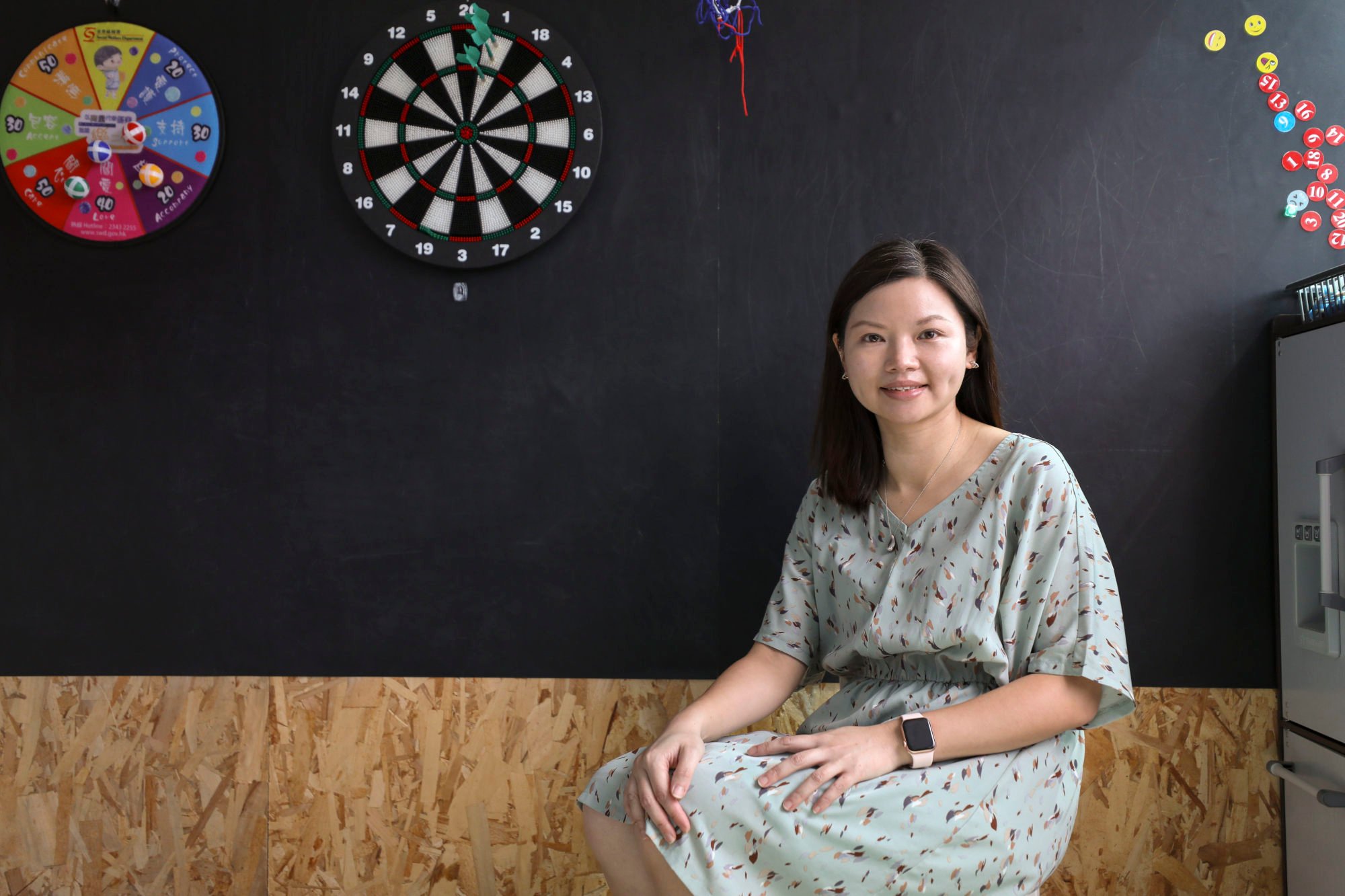
Should you get a prenup? More Hong Kong couples opting in before marriage to avoid divorce ‘war’ amid high separation rate
- Lawyers say most clients are wealthy residents seeking to protect their assets before marriage, likening such moves to buying life insurance
- Couples need more preparation for marriage, but few are drawn to available courses, counsellors say
Hong Kong family lawyer Jocelyn Tsao dropped all romantic notions of marriage after witnessing hundreds of divorcing couples quarrel bitterly over money, assets and access to children.
“Getting married does not mean your partner will stay with you forever. There is no guarantee,” said the 40-year-old who has been practising law since 2009.
So before marrying an Italian architect two years ago, she insisted that they signed a prenuptial agreement.
Both the same age and financially independent, they agreed in general to divide jointly owned assets and keep their own if they went their separate ways.
She said her husband was a good man and she could not imagine him being disloyal, but she had dealt with many women who divorced men they thought would never betray them.
“I have to be prepared,” Tsao said. “A good prenuptial agreement can narrow the space to be disputed and shorten the divorce process.”
Tsao and her husband are among an increasing number of couples opting for a prenuptial agreement amid a relatively high divorce rate of about 2.5 per 1,000 population over the past decade.
Most are well-off individuals or couples with at least one partner from a wealthy background.
Family counsellors said having a prenuptial agreement was only one of many ways to resolve potential conflicts when marriages broke down.
They said couples in Hong Kong needed to prepare better for marriage by undergoing training to prepare for inevitable stresses and strains in the relationship.
While divorce itself was no longer taboo, some were concerned that the high divorce rate might spread “negative energy” in society and affect children’s upbringing.
‘Like buying life insurance’
Since the pandemic, these inquiries have risen significantly, reaching as high as five times a month. She said she believed the uncertainties wrought by Covid-19 made people want to plan for the worst.
She described a good prenuptial agreement as one where both parties disclosed their finances fully and signed the document at least 28 days before marriage, with lawyers explaining and ensuring fair terms.
For the more vulnerable, such an agreement could prove liberating as they would not have to remain in an unhappy marriage because of their financial reliance on their spouse, she added.
Tsao said most of her clients were individuals from wealthy families with assets of at least HK$100 million (US$12.8 million), but financially independent couples also wanted to safeguard their own assets.
“If everyone signs a perfect prenuptial agreement, there is nothing to fight about in divorce … If families and couples really want to preserve their relationship and assets, it is better to get a prenuptial agreement,” she said.
“The nature of a prenuptial agreement is the same as insurance. No one wants a divorce, just like no one wants to die in a car crash, but it is a provision against a possibility. Unfortunately, divorce is common now.”
A similar trend was also observed at law firm Haldanes. Elsie Liu, head of its family law group, said her team had dealt with about 50 prenuptial agreements in the past five years, a third of the total over the past two decades.
The clients were either from well-off families, the nouveau riche or those about to remarry, and about 90 per cent in recent years were local and mainland Chinese couples.
Liu said parents from wealthy families were often the ones seeking advice and encouraging their children to get prenuptial agreements that would protect the family legacy.
In cases with a greater wealth gap between partners, the better-off partner would choose an agreement specifying how much the other would get in case of divorce, linked to the number of years of marriage.
Liu stressed that the agreement was only a reference for the courts, which reserved the right to review whether the terms were reasonable to the less well-off party.
The courts would decide on child custody, considering the child’s welfare based on issues such as the financial and caretaking ability of the parents.

‘Divorce is like war, with many conflicts’
Hong Kong has recorded a rise in divorce rates in recent decades, with the average rate at about 2.7 per 1,000 people in the population between 2011 and 2020.
Over that period, the average rate was about 1.8 per 1,000 in Japan and the United Kingdom, 2.2 in South Korea and about 3 in the United States.
There were 20,621 divorce applications filed to the Family Court last year, up 25 per cent from 2022 and almost reaching the pre-pandemic level of 22,074 in 2019.
The Family Court received an average of 22,338 divorce applications per year between 2010 and 2019, with an annual average of 17,196 during the pandemic.
Counsellors dealing with couples who broke up told the Post they were more concerned about the pain of divorce and how this might be eased.
Emily Wong Kit-ming, supervisor of the Hong Kong Catholic Marriage Advisory Council’s co-parenting support centre in Kowloon East, which supports more than 200 divorced families, said couples endured anxiety and anger throughout the process.
“Some need to take their case to court. There are many unknown factors, such as money, procedures and custody of their child,” she said.
“It is like a war and involves many conflicts. They will look for evidence to find fault with the other. It accumulates resentment that affects both the adults and children.”
She said children worried about being abandoned by their parents, and some developed trust issues when it came to relationships and marriage.
Cecilia Chan Lai-wun, professor emeritus at the department of social work and social administration of the University of Hong Kong (HKU), said the hatred and impulse for revenge between divorcing partners could also spread negative energy in society.
But she stressed that society should not treat divorce as a problem, since it gave individuals the option to walk away from unhappy marriages.
“The focus should be on promoting mutual communication and understanding in a marriage, lowering expectations and modifying their pace. If they cannot hold onto that, they should have a cordial divorce and not plant hatred in their children,” she said.
Chan said the source of conflict in marriages was often practical concerns over matters such as housing, family finances and parenting duties, whereas prenuptial agreements addressed part of the issue for wealthy families.
Marriage problems also resulted from mismatched expectations, difficulties with in-laws, partners who failed to be considerate or caring enough, extramarital affairs and verbal or physical abuse.
“Couples look for counsellors, psychiatrists and psychologists or undergo marriage enrichment programmes only when they are in conflict,” she said.
Marriage needed “a lot of training and education”, but Hong Kong did not have a culture of nurturing marital relationships, she added.

Few go for pre-marriage courses
The Hong Kong Catholic Marriage Advisory Council promotes a marriage preparation service to help couples discuss practical topics beyond their romantic relationship.
“It is like preparing for a trip. You need to know what to bring, where the photo spots and areas worth paying attention to are,” said executive director Angela Chiu Chui Yuen-fun.
But she said marriage preparation had yet to catch on, with only about 400 couples of various religions enrolling in the programmes run by NGOs over the past five financial years.
The latest official data showed 44,247 marriages in 2019 and an average of 28,258 each year during the pandemic.
The Family Planning Association of Hong Kong, an NGO focusing on sexual and reproductive health, has also seen a low response to its marriage and sex counselling services for premarital and newly married couples.
A manpower shortage also contributed to the organisation serving only 192 couples in 2018 and 2019, and another 112 couples during the pandemic.
The government does not run marriage preparation services but offers counselling and programmes for couples and families in 65 Integrated Family Service Centres and two Integrated Services Centres.
The centres are operated by the Social Welfare Department and NGOs, which receive government support to help individuals and families in need, including the elderly and cases of attempted suicide and child abuse.
As of December, they had handled a total of 68,299 cases in the 2023-24 financial year and processed an average of 80,515 cases annually between 2019-20 and 2022-23.
Chiu, whose organisation runs a subsidised family centre in Kennedy Town, said a lot of time was put into counselling work.
More than a third of the 752 active cases in 2022-23 involved parental difficulties and marital problems, while the rest included mental health, housing and employment issues.
The centre also had 60 support groups and 88 programmes, with about two-fifths related to parenting, couple and family relationships.
Asked whether the government should allocate more resources to the centres’ preventive initiatives, Chiu said raising public awareness was more important.
HKU’s Chan said the government could consider setting up a primary office for family health to step up preventive measures and nurture marriages.
“The centres are too overwhelmed with cases to put out the fire. The dimension of community education and family life is often neglected,” she said.
She added that schools should teach pupils about communication and respecting each other’s differences rather than focusing on academic results.
Pointing out that marriage issues were also intertwined with social problems, she said the lack of affordable housing and long working hours drained the energy of couples.
“We should strive to build a family-friendly environment,” Chan said.

Coming to grips with couplehood
With their wedding planned for next year, Henry Lee, 29, and Hilda Yam, 26, felt the need to prepare for their new identities as husband and wife.
As a middle-class couple without many assets, they said the question of a prenuptial agreement had not arisen for them.
“We do not have much misalignment in our views on money, migration, family planning and practical things,” said Lee, a technology company account manager.
Yam, who works in a fintech company, said: “I think it is more on aligning our expectations and discovering potential blockers we may face in our marriage life from someone with experience.”
The couple benefited from counselling when conflict erupted soon after they moved in together last month.
Yam was upset when her fiancé separated their household duties and belongings in daily conversations as if she were his flatmate.

A counselling session helped them work through those early issues arising from living together.
Both worked at improving their communication, with Lee making an effort to use “we” and “us” more than “you” and “me”, while Yam worked on expressing her feelings and thoughts.
“We will explode if these small conflicts accumulate, so we need to learn how to address them,” Lee said.
They realised that these were just the first few lessons in what they hoped would be a lifelong journey.
“Marriage is about staying together even when there are difficult moments,” Yam said.

